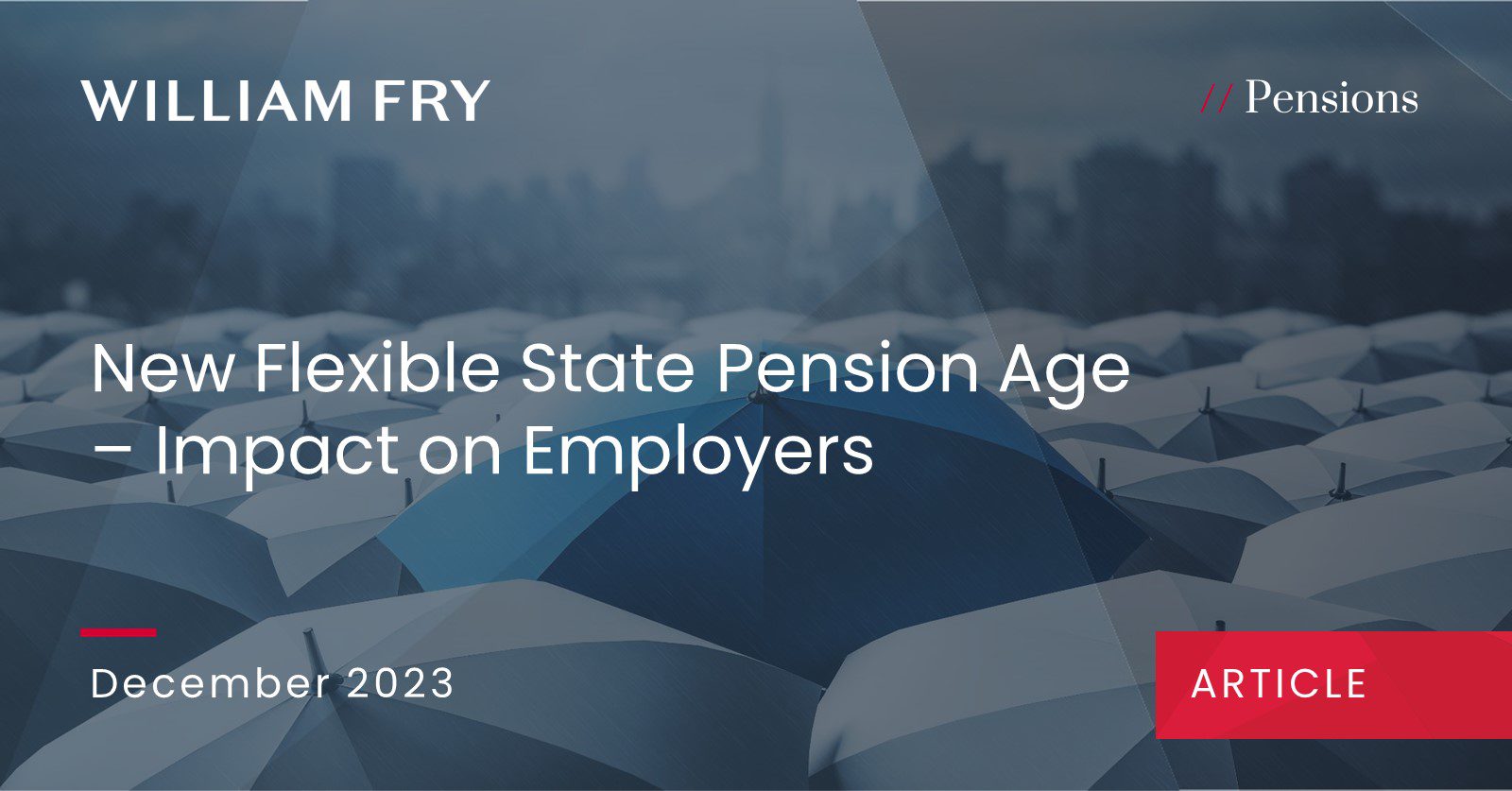In September 2022 the Cabinet announced ‘landmark’ reforms of the State pension system in Ireland (Reform Package).
One such proposal was the introduction from January 2024 of a ‘new flexible pension age model’, i.e. an option to continue working to age 70 in return for a higher State pension. Draft legislation has now been published to introduce this flexibility.
New Flexible Drawdown Options
The Social Welfare (Miscellaneous Provisions) Bill 2023 (Bill) was published on 22 November 2023. Under the terms of the Bill:
- a person reaching age 66 will have the option to take payment of the State pension (contributory) at age 66 in the usual way (assuming they have made the requisite PRSI contributions); or
- defer taking payment of the State pension (contributory) until any age between 67 and 70 (in return for an actuarially increased rate of pension).
Incentive to Work Longer?
The advantages for an individual availing of the new flexibility to drawdown the State pension (contributory) are that:
- they will receive an actuarially increased pension; and
- any further PRSI contributions made while they remain in employment will count towards their rate of payment.
The explanatory notes to the General Scheme which pre-dated the Bill went so far as to propose that these reforms will offer an incentive to older people to remain in employment beyond age 66. In reality, we are more likely to see a change in employee behaviour (i.e. opting to defer drawdown of the State pension (contributory)) in circumstances where an employer does not contribute to a pension scheme or PRSA on behalf of its employees or where employees have declined to take up such benefits.
Added Challenge to Enforcing Mandatory Retirement Ages?
Employees who are not provided with pension benefits by their employer (or those who have not availed of available benefits) may well decide to remain in employment for longer because they will not have other financial supports available come retirement. This change to the State pension (contributory) may create an additional challenge for employers in the context of enforcing mandatory retirement ages (MRAs) as more employees may seek to work for longer. While the Employment Equality Acts 1998 to 2021 (1998 Act) provide for a general prohibition against age-related discrimination, the 1998 Act permits employers to implement a MRA. However, any such MRA will be considered discriminatory unless it can be objectively and reasonably justified by a legitimate aim and the means of achieving that aim are appropriate and necessary. That said, it is becoming increasingly difficult for an employer to successfully defend a MRA. Age-related discrimination complaints are on the rise. According to the 2022 Workplace Relations Commission’s Annual Report, of the nine protected grounds for discrimination, age-related discrimination complaints showed the highest increase – 176% – when compared with 2021 figures.
Finally, the Reform Package proposes that the Department of Enterprise, Trade and Employment would introduce measures that “allow, but do not compel” an employee to stay in employment until the State pension age. This measure is not included in the Bill. We await the details of any such measures to consider how they may impact employers with MRAs below the State pension age.
Defined Benefit Scheme Documentation
The Bill may also have an impact on the interpretation of defined benefit (DB) scheme rules that operate on an “integrated” basis (i.e. where an individual’s DB scheme pension makes an allowance for the fact that the individual will also receive a State pension). DB scheme documentation will have been drafted on the basis that there is one maximum rate of State pension (contributory) and that payment of State pension (contributory) may not be deferred. The Bill introduces 5 separate rates of State pension (contributory), being the ‘age referenced’ rates at each age from 66 to 70. As such, trustees and sponsoring employers of DB schemes will need to evaluate with their advisers if the technical changes to social welfare legislation envisaged in the Bill will impact the operation of the ‘integration’ provisions within the rules of any such scheme.
Conclusion
The State pension reforms may create an additional challenge for some employers in the context of enforcing MRAs. However, a challenge for all employers will be the related PRSI increases. In an accompanying press release to the publication of the Bill the Minister for Social Protection announced incremental increases in all classes of PRSI. This was stated to support the cost of the retention of the State pension at age 66.
We anticipate the Bill will progress quickly with the State pension flexibility reform expected to take effect in January. Employers are best advised to consider how the State pension reforms will impact their business. For more information, please contact Ian Devlin, Nuala Clayton or your usual William Fry contact.
This article is based on the version of the Social Welfare (Miscellaneous Provisions) Bill 2023 as initiated on 22 November 2023.
Contributed by Jane Barrett and Richard Smith



